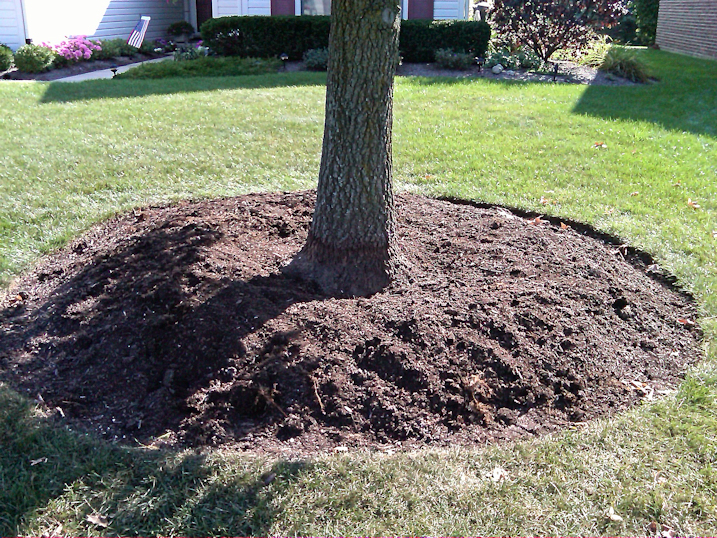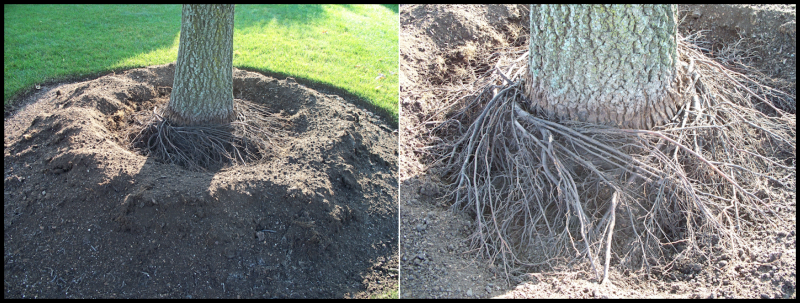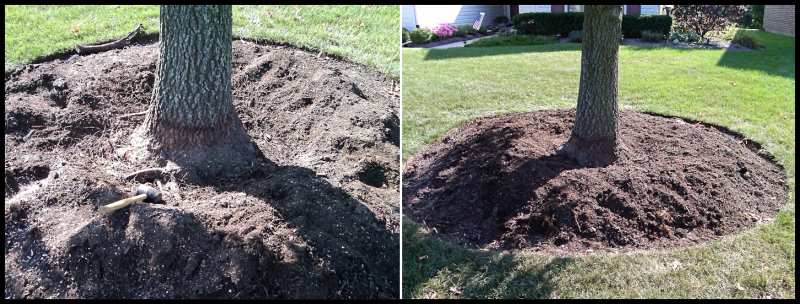Liz Morris – 18 September 2022
Good morning. As always, it is a privilege to delve into God’s word with you, and I wish to thank Brooke for her preparation and leadership of our service today. Welcome to all present and to those online to what is a challenging, but important topic.
This is a rather boring picture of a tree. I know there are many photographs of trees I could have chosen to share, and this is not even a full tree on display, and perhaps we can imagine how its branches and leaves look for ourselves.

In Psalm 1, the psalmist writes that God blesses those who “find happiness in the Teaching of the Lord, and they think about it day and night. They are like trees growing beside a stream, trees that produce fruit in season and always have leaves”. (ps1 2-3) I am sure many of you have a favourite tree. There is something calming and beautiful about trees. Spending time in nature, immersed in the tranquillity of a forest can be grounding and hopeful. The comparison to us being planted by a stream to produce fruit and always having leaves is a lovely simile for how we grow from God’s teaching over our lives, and it isn’t the only place in the Bible where we hear such comparisons. We will be focusing on our Old Testament reading from Jeremiah today, and at the beginning of the book of Jeremiah, it says that he is called by God to speak with an authority that would uproot and tear down as well as plant and build up (Jer 1:10). Which brings me back to this rather less than impressive tree picture I’ve chosen today. On the surface, it has no visible issues, but you’ll soon see why I chose this picture instead of a more impressive one. The tree has grown and seems to be thriving, but when we dig deeper, this is the reality.

So, what has happened here? The roots of this tree have not grown properly, instead they have interlocked, growing over each other instead of going downwards, which means that the roots have started to restrict the flow of sap to the tree. This is what is known as ‘tree girdling’.
Arborists have commented the following about tree girdling and its effects on trees:
“Girdling roots occur when the roots of a tree grow next to or around the trunk of a tree instead of away from the tree. This condition can cause affected trees to slowly weaken or die. The damage caused by girdling roots is a slow process and it may be several years before the tree shows any outward signs of decline” (https://www.owentree.com/Girdling_Roots.php).
“Girdling roots can be tricky in that symptoms often appear long after the issue manifests. Without getting into detail here, girdling roots pose potentially severe and often chronic fatal problems for trees. Simply put, the tree eventually can “choke” itself.” (https://www.treefirst.org/girdling-roots)
I think it is important to pause on those facts as we head into our Jeremiah reading today. There are symptoms that appear long after the issue manifests and sometimes it is several years before any outwards signs of decline are revealed. I am sure you’re following me in my analogy here about our own metaphorical root systems.
Some important context to our reading today is that Jeremiah was a prophet who was said to be a ‘messenger of God’s justice and grace.’ Although justice and grace are synonymous with God, the message that Jeremiah brings sounds a lot more like destruction than it does justice. In the lead up to our reading from chapter 8, Jeremiah has warned the people of Judah that their idolatry would lead to destruction. They have been warned about pretending everything is okay and about complacency. The people of Judah have been told they must stop ignoring the marginalised, stop silencing those who point out injustices, and, importantly, those in political and religious leadership positions are told they must stop offering ‘empty hopes of peace’ (Jer 8:11). Jeremiah sees the roots girdling, but all anyone else sees is the perfectly ‘normal’ tree above ground. He is warning them of the tangling of roots below that will cause destruction to them if not tended to, to the point where he spends forty years telling the people to repent and turn back to God, foreseeing the destruction ahead, and no-one listens to him. Jeremiah is completely alone in his pain and in his struggles, and it is in this context that we perhaps understand clearly why Jeremiah penned the book of Lamentations. Jeremiah is in a lonely position, and it is here that we hear him cry out with the following words:
‘I am burdened with sorrow and feel like giving up’. Our poignant opening words to Jeremiah’s lament touch us deeply, as a man who is grieving. Grief can be like the girdling roots for us, and today I wish to look at how Jeremiah grieves deeply for God’s people. Only recently, we have seen a communal outpouring of grief with the death of Queen Elizabeth II, and we have been appointed a day of mourning this Thursday to communally grieve. However, grief is deeply personal, and there are moments like these, where the burden of sorrow cannot be communally shared or understood and there tends not to be an expiration date on experiences of grief. In Elif Shafak’s novel, The Island of Missing Trees, one of the character’s wisely says: “If you weep for all the sorrows in this world, in the end, you will have no eyes.” Perhaps foolishly we ask God to break our hearts for what breaks His without stopping to consider the frailty of human hearts. The human experience of grief is, at times, overwhelming.
When I was 18, my friend’s brother died in a car accident. I was living in London at the time and remember receiving the news moments before I was about to go back to teaching kindergarteners. As the little ones walked back into the classroom, I was overcome with my want to protect them and their precious lives. This was my first real view of bone-aching grief.
When I was a little older, my maternal Grandmother died after a battle with bowel cancer. Her death was not a surprise to me, but what was a surprise was my grief. I remember not being able to sleep because of my raw tears that would not stop. I experienced, for the first time, what I now recognise as panic attacks which only stopped after her funeral.
At Christmas time, I have two precious ornaments with which I adorn my tree, alongside the usual baubles and lights. These two particular ornaments are wooden and have the names of the two students I have taught who have passed away in the short time I have been teaching. I hope to never purchase another ornament such as these, but I honour those young girls who were taken too soon from this world.
Recently, old friend grief has been my constant companion and the lament of Jeremiah speaks deeply to me. What does God have to say about grief? What does Jeremiah have to teach us and how do we reconcile these feelings of sorrow with a loving God who only wishes to see us prosper? It is in this context that we look at this topic today.
If you have a Bible or Bible App that you’d like to turn to, our reading is Jeremiah 8:18-9:1 and you’re most welcome to follow along as we delve into this pericope.
8:18 I’m burdened with sorrow
and feel like giving up.
19 In a foreign land
my people are crying.
Listen! You’ll hear them say,
“Has the Lord deserted Zion?
Is he no longer its king?”
The people reveal an expectation here that God will be there for them at any whim without any need to cultivate a personal relationship with God. Instead of choosing to strengthen their relationship with God, they put their trust in idols, and we see a narrative shift here in the second half of verse 19 where God responds to their question saying ‘Why did you make me angry by worshipping useless idols?’ Is this Jeremiah’s lament, or God’s? Perhaps it is both?
Continuing on, we hear more of the people’s complaints:
20 The people complain,
“Spring and summer
have come and gone,
but still the Lord
hasn’t rescued us.”
Theologian, Garrett Galvin says: “We get a sense of people turning everywhere for some way to leverage their relationship with God. First, they try Zion. Next, they try idols. They seem to be turning everywhere except to God and each other. Even in verse 20, there is some sense that something magical would happen at the end of the summer harvest. The people have managed to make both idols and idols out of religious feasts at the year’s end.”
It prompts a response from Jeremiah about how crushed his heart is. We will return to verse 21, but verse 22 questions why the people’s sickness can’t be healed:
22 If medicine and doctors
may be found in Gilead,
why aren’t my people healed?
As well as hoping for a magical harvest and idols to stop all of the issues and destruction, there is a question about finding healing from Gilead in verse 22. This was, historically, a place that was fertile, a place east of the Jordan River. It was known for its creation of healing balms, but historians still do not know exactly how this was made. Philip Ryken has suggested that this balm was some kind of “soothing, aromatic resin made from a tree or a plant” and possibly is akin to “aloe vera”. And perhaps we can laugh at the idea that aloe vera was the proposed solution to all of their problems, but Jeremiah points out to us that even Gilead has no medicine or doctors who could help. Jeremiah’s lament moves from despair to utter grief by chapter 9:1 “I wish that my eyes were fountains of tears, so I could cry day and night for my people who were killed.” Hope does not seem to transpire. Idols, harvests, medicines, nothing fixes this, and Jeremiah grieves with a rawness that overflows.
I wish to return to the verse that is most steeped in grief for us. In Verse 21, Jeremiah agonisingly bleeds the following: “My people are crushed, and so is my heart. I am horrified and mourn”. There is a purity in this statement. It is presented as ugly. Jeremiah is horrified. His heart is crushed. He is telling God plainly and without reservation: “I am not okay”. There is a beauty in this because Jeremiah is doing what many of us fail to do; he is speaking to God frankly, without editing his prayer and models to us what we should do, which is to lay our grief at God’s feet. Jeremiah is not sugar-coating his feelings of helplessness and the raw confession of wanting to give up that begins our passage, and he plainly says he feels like he will never cease crying for his people. How many of us can say we understand this view of grief? The days where you carry a pain with you that is unrelenting. Perhaps you manage until you’re in a place where you can only cry out to God and say “this is hurting me”. How ever you are presenting yourself to us today, let it be known that this church is a place where your grief will be welcome. It sounds perhaps peculiar to be inviting grief inside here, but we fail time and time again in our church communities to truly let people grieve, also I believe this has been something that has been modelled to us recently with ways to reconcile previous grievances as a community. There is a temptation to want to move to comfort and reassurance. There is an innate desire to want to fix things. But, this passage calls us to sit in grief. Jeremiah is pressed to sit in his grief. He is lonely in it. He cries ceaselessly. He is burdened with sorrow. And he must sit with it. When the whole world is spinning perilously out of control, we need to slow down and we need to cry out to God and say “I am burdened with sorrow and I feel like giving up”. We do not need platitudes when it comes to personal or communal grief. Jeremiah understood that the destruction and devastation were so mighty, that all he could do was grieve. Perhaps, though, we do need to sit in it with God, and follow up our lament with a small, but mighty “help me”.
The shortest verse in the Bible is John 11:35 “Jesus wept”. Know that Jesus wept for you, and weeps for your sorrows. He stores up your tears in a bottle and counts each of them (Ps 56:8). Grief is a real and raw experience and is needed when our girdled roots can no longer hide what they restrict in our soul. The sap of life is needed, and the best thing about root girdling is that it is not a death sentence to the tree. This is where I return to the first tree we looked at with its girdled roots made visible to us. Our tree’s roots have been tended to so that healing can begin.

Jesus says ‘I am the true vine, and my Father is the gardener.’ (John 15:1) Our once root entwined, suffocated tree can be pruned. We just have to be willing to let Jesus get to our root system and cut away all that is encircling us, even when we’ve left it so long that we are chaotically entangled.
At the end of our service today, whilst we move out to have morning tea together, I would like to offer up a space for you to come to the front and I will pray with you for whatever sorrows burden you. If others wish to also offer their prayer power, please join me. Grief is a real and difficult part of the human experience. Jeremiah was no stranger to this truth, but he does not edit his prayer to God when he cries out with a heavy heart, and may we learn from his example to speak to God in our grief with an unreserved heart.
Let us pray:
Father, let us mourn and grieve for personal and communal sorrows, knowing that the fountains of tears we shed in heartsickness and heart-sadness are seen by you. Let us be a church where we are able to grieve and process all manner of damages; physical, emotional, spiritual. When we have left our roots to girdle, restore us and renew us even when it hurts. Especially then. We pray all of this in your son’s name, Amen.
I want to give you a moment of solemn contemplation whilst listening to the words of a song. You can use this as a time to meditate, or for personal prayer. The song is called ‘Even When It Hurts’, and I hope it ministers to each of you in whatever grievances you bear as you continue to be a light for God’s love and people.
Images sourced from Arbor Rangers ™